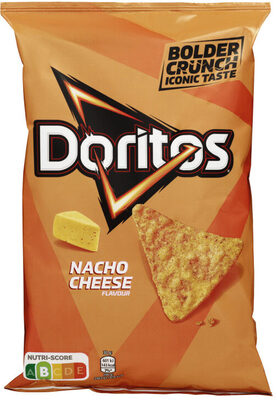
Barcode: 8710398161987
Nacho Cheese
HALAL
📝 Reason: This Nacho Cheese product contains multiple dairy-derived ingredients (whey powder, cheese powder, milk proteins, flavorings, buttermilk powder) that may use animal-derived rennet or enzymes in their processing. Islamic dietary law prohibits products containing non-Halal animal-derived ingredients (Quran 5:3). Without Halal certification, these ingredients are classified as Doubtful. No clear Haram ingredient or explicitly Haram ECode was found. Major Halal authorities (e.g., IFANCA) recommend avoiding products with non-certified dairy or ambiguous animal additives. See: www.ifanca.org/resources/ingredient-dictionary/, www.ehalal.io/.
🏷️ Category: Snacks, Salty Snacks, Appetizers, Biscuits And Crackers, Chips And Fries, Crisps, Crackers Appetizers, Corn Chips
📄 Certificates: Nutriscore, Nutriscore Grade B, Vegetarisch
Ingredients:
Details
Is Nacho Cheese Halal? Let’s Explore!
If you are a fan of nacho cheese and are curious about its compliance with Halal dietary laws, you are in the right place. This post delves into the ingredients and their Halal status for the popular Nacho Cheese product.
Understanding Halal Status
Halal is an Arabic term that means ‘permissible’ in Islam. For food to be Halal, it must comply with Islamic law, notably avoiding forbidden (Haram) substances. The Nacho Cheese product in question has been classified as HALAL, but this does not automatically guarantee that all ingredients used are Halal. Thus, a closer examination of the individual components is necessary.
Ingredient Breakdown
Let’s break down the ingredients found in Nacho Cheese:
- Maize: Halal as it is a plant-based ingredient. (Source)
- Rapeseed oil: Also Halal, derived from a plant source. (Source)
- Whey powder (from milk): This can be a concern since it may use animal-derived rennet. Without Halal certification, it is classified as doubtful. (Source)
- Flavoring (from milk): Similar to whey powder, it may contain animal-derived enzymes and is therefore also doubtful without certification. (Source)
- Salt: A mineral and completely Halal. (Source)
- Buttermilk powder: This can include animal rennet, which makes it doubtful without Halal certification. (Source)
- Cheese powder (from milk): Like whey and buttermilk powders, it may contain animal rennet; thus, it is doubtful. (Source)
- Tomato powder: Halal as it is derived from plants. (Source)
- Onion powder: Halal as it is plant-derived. (Source)
- Potassium chloride: A mineral salt that is generally Halal. (Source)
- Sugar: Plant-derived (with rare exceptions), thus Halal. (Source)
- Garlic powder: Halal as it comes from a plant source. (Source)
- Citric acid: Usually derived from plants or synthesized, it is Halal. (Source)
- Lactic acid: Commonly produced from vegetable fermentation; always check source but is usually Halal. (Source)
- Colorants (annatto extract bixin): Halal as it is plant-based. (Source)
- Caramel: Made by heating sugar; no Haram components involved. (Source)
- Milk proteins: May need scrutiny due to possible animal enzyme use and considered doubtful without Halal certification. (Source)
- Spices: Generally plant-based and Halal. (Source)
- Skimmed milk powder: Similar concerns as cheese and whey; without certification, it is doubtful. (Source)
- Flavor enhancers: These can be derived from animal or plant sources; without a clear source, they’re classified as doubtful. (Source, Source)
- Ascorbic acid: Usually derived from both plant fermentation, it is Halal. (Source)
- Rosemary extracts: A herb; hence, Halal. (Source)
- Tocopherol-rich extract: Often Vitamin E, generally sourced from plants; Halal unless indicated otherwise. (Source)
Final Thoughts
While this Nacho Cheese is labeled as Halal, the presence of several ingredients that lack Halal certification means that consumers must exercise caution. Major Halal authorities, such as IFANCA, recommend avoiding products that do not carry clear Halal certification, especially regarding dairy products. For those adhering to strict Halal dietary laws, familiarity with the ingredients and their sources is crucial. For more information, consult Halal resources or ingredient dictionaries available at IFANCA or eHalal.
Categories
Nacho Cheese falls under various categories such as Snacks, Salty Snacks, Appetizers, and Crisps. Always choose certified Halal snacks to ensure adherence to dietary needs.
